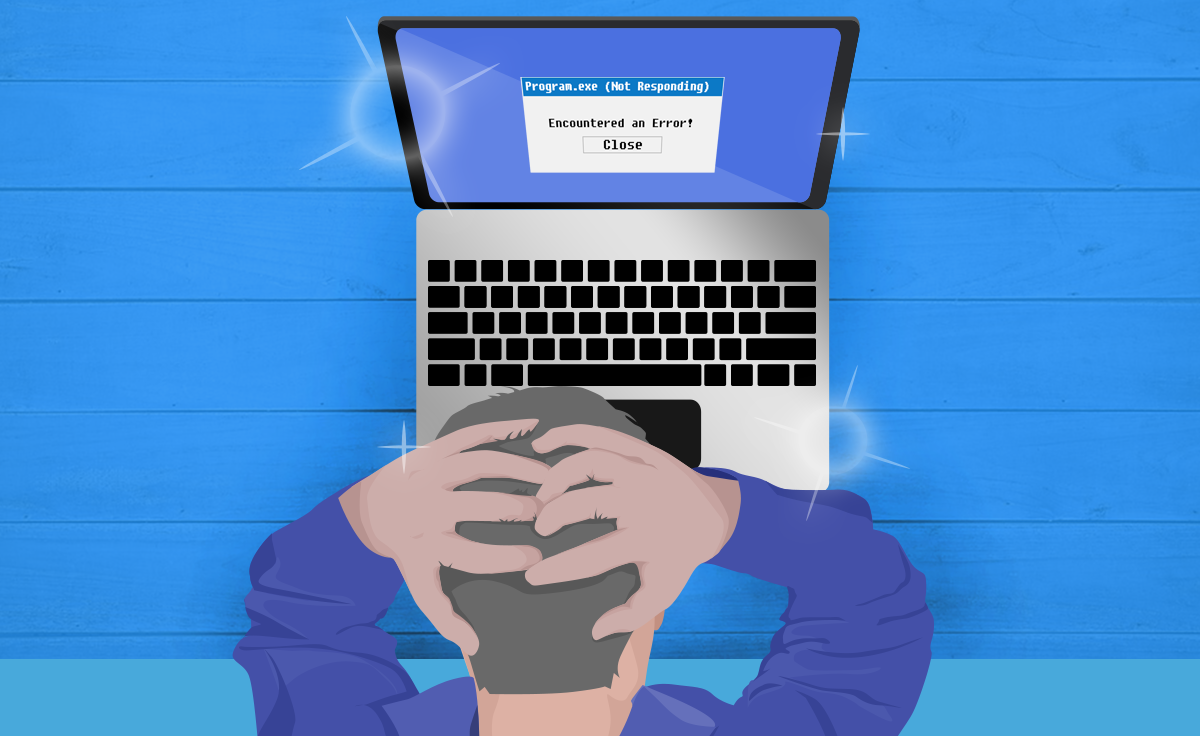Your old computer was beginning to slow down. So, you invested in a shiny new laptop. The clouds part and the sun shines down on this bright and lovely new device. Everything will be faster and easier. Only, from the first day, the new laptop is lagging. It's almost as slow as you old one! Why is it running so slow? One of these might be the reason.

#1 Not enough computing power.
One of the common causes is the new device is simply underpowered. This is especially true of cheaper systems or the ever-popular Black Friday "specials". Usually, these minimally expensive systems are shorted in either processor or RAM.
RAM is the computer’s main memory. This helps your computer do more at once. Information from the operating system, application programs and data are kept here, when in use, for quicker processing.
Resolution: You might see 4GB, 8GB, 16GB or more of RAM available. How much you need is going to depend on what you plan on doing with the computer. For a laptop with Windows 10, we recommend at least 8GB of RAM, but 16GB is preferable if you tend to have a lot of programs running at the same time. Not all laptops will let you access the RAM. But when you can, upgrading memory can be quick and affordable.
A weak processor on the other hand is a bigger issue as they are typically less upgradable. The best fix for this is to simply avoid it. Avoid devices powered by pentium or celeron processors as these are far too weak for anything except the most basic of tasks.
#2 Mechanical hard drive.
An even more common issue with new computers are ones sold with a mechanical hard drive. Even just a few years ago, devices with mechanical hard drives were an okay thing. However today, SSDs are almost manditory. SSDs provide a massive improvement in loading times which affects how quickly programs open or even how quickly the operating system boots.
Resolution: In many cases, a mechanical hard drive can be easily upgraded to an SSD. However, some super slim laptops have limited upgradability.
#3 Bloatware.
Retailers like to tout all the bells and whistles that come with their laptops. So, when you turn on your laptop for the first time, you may notice there’s already a lot of software preloaded. Much of it you’ll probably never use. Maybe there are toolbars you don’t need, games you’ll never use, or stock widgets that you couldn’t care less about. These examples of bloatware slow down your computer.
The third-party applications are a revenue source for the manufacturer, but don’t always help you. Microsoft, for instance, sells a line of computers that come without any pre-installed third-party software. Computerworld reported those PCs “start up 104% faster, shut down 35% faster and have 28 minutes more battery life.”
Resolution: When you get a new laptop, check out the pre-installed software before you add your own. Determine what the existing software will do, and uninstall anything that you won’t want or don't need.
#4 System setup and updates
If you've just fired up your laptop for the first time and think it's slower than it should be don't panic. The reason it may be slow on the first startup is due to system updates. For instance, a Windows 10 automatic update to bolster the security of the computer. You can't do much about these at first but have a little patience and once the updates are completed, the speed of the system should return.
Know what you're getting
Buying a new device can be confusing if you don't know much about computers. We recommend consulting with your local computer shop and having them help you pick out the perfect system for your needs.